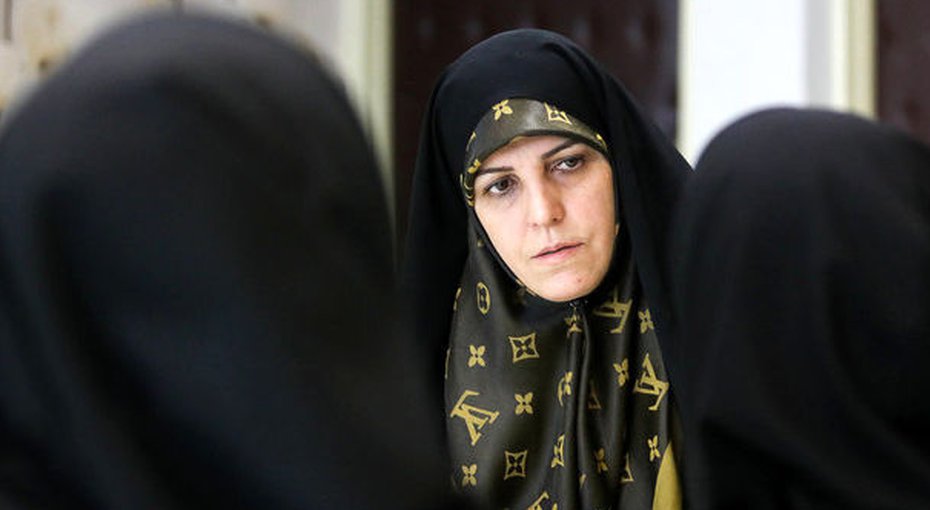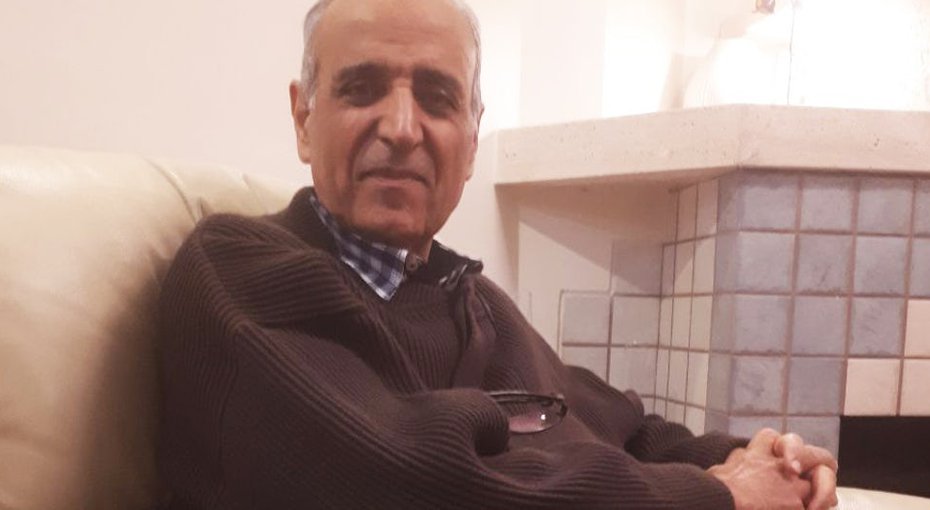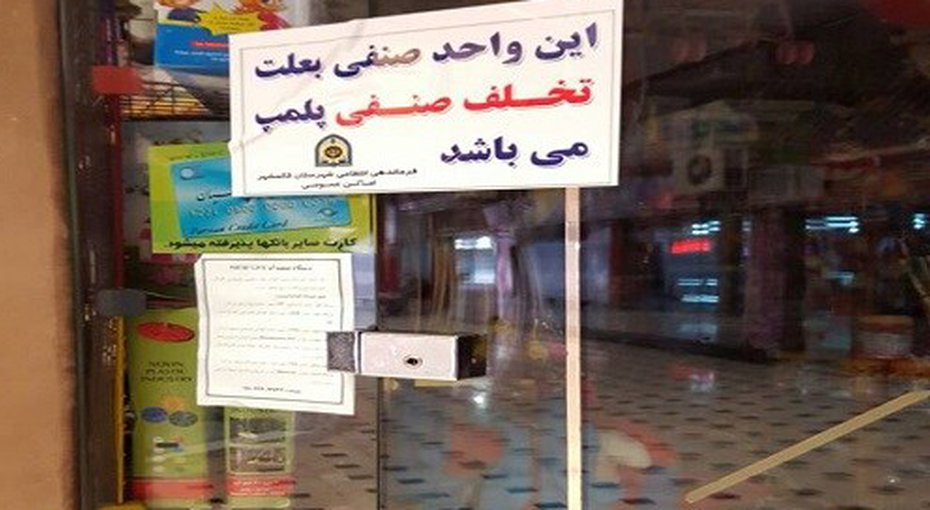Source: www.iranwire.com
By AIDA GHAJAR

Iran’s Baha’i community is celebrating the release of Behrooz Tavakoli, one of the seven members of an informal leadership group called the Yaran (“the Friends”).
Tavakoli is the third of the group to be released after serving a 10-year sentence. Mahvash Sabet was released on September 18 and, then at the end of October, authorities released Fariba Kamalabadi.
The release of the three prominent Baha’is has brought hope to some Baha’is in Iran, who also welcomed recent apparent moves from President Rouhani’s administration to improve relations between authorities and the Baha’is, Iran’s largest minority religion.
Shahindokht Molaverdi, Rouhani’s Special Assistant for Civil Rights, recently stated that the government was looking at authorities’ closures of Baha’i businesses, and was corresponding with the responsible agencies to resolve the matter. Since Rouhani was elected president in 2013, economic, educational and security pressures on the Baha’i community have actually increased — despite campaign pledges — so Molaverdi’s words have raised hopes that the government will finally usher in changes and improve the situation for Baha’is across the country.
According to Iranian media, Laya Joneydi, Rouhani’s Vice President for Legal Affairs, is handling the affair, but it is not clear what government agencies are involved in the discussions.
Mahvash Sabet has expressed hope that Molaverdi’s words will be matched by actual moves toward change. “Arrests and pressures are widespread,” she says. “The closure of businesses is still going on. But just the fact that Molaverdi has publicly talked about it is a positive step in itself.”

She added that sections of the Iranian government have always tried to protect the rights of the Baha’is and to solve their problems.
Mahmoud Sadeghi, a prominent reformist MP from Tehran, said in parliament on December 4 that all Iranians, including those from religions unrecognized by the constitution – which encompasses the Baha’is – should have their constitutional right to education respected [Persian link]. Reminding fellow politicians that education is a human right enshrined in Iran’s constitution, he said, “All Iranians, regardless of gender, race, religion or language, have the right to education, even those who are not members of official religions.”
A member of Iran’s reformist “Hope” faction, Sadeghi is known for being outspoken on contentious political issues. During his December 4 speech, he also emphasized the way the Iranian political system was structured meant that decisions on education were not a simply a matter for the Ministry of Education or the government — other institutions, including the intelligence services, often determined these policies. In fact, he said, the minister of education probably only made decisions 30 percent of the time. This, he suggested, was a result of the fact that Iran was still very much in the process of transitioning to a democracy, a process he acknowledged would not take place overnight.

Behrooz Tavakoli, the latest leader to be released, faced discrimination at work and was dismissed as a government social worker because he is a Baha’i. As with the other leaders of the Yaran, he was handed down a 10-year prison sentence, which he has now served.
Today, Baha’is continue to be excluded from employment in the public sector and from some professions in the private sector. Authorities regularly seal up Baha’i-owned shops and businesses when their owners temporarily close them to observe Baha’i Holy Days. Over the last few years, hundreds of businesses have been forcibly closed, depriving an income to families that rely on them.
A fresh wave of closures began on November 2 and 3, two Baha’i religious holidays. “During the two Baha’i religious holidays,” says Simin Fahandezh, a Geneva-based spokeswoman for the International Baha’i community, “more than 200 Baha’i shops in Iran were sealed off and a number of Baha’is were arrested.”
Baha’is observe nine religious holidays throughout the year, during which, according to their faith, they are forbidden from conducting business activities. The Islamic Republic authorities, however, claim this activity to be an act of “disrupting the normal functioning of the market” and accuse them of “Baha’i proselytizing.” In retaliation, they shut down Baha’i places of business and arrest people from the community, which goes against laws that give business owners the right to close their businesses for up to 15 days each year without having to provide a reason. When Baha’is try to exercise this right, they are accused of “unauthorized religious ceremonies.”
Whim-Based Law Enforcement

When a Baha’i business is closed down, the owners routinely appeal to the responsible authority, writing a letter to request that their shops be permitted to reopen. But the response they usually receive is that they are required to sign a pledge that they will only close their shops on official holidays recognized by the Islamic Republic and not on any other day. In practice, however, the closure of a business or securing a permit to reopen it does not necessarily depend on whether or not the business owner signs a pledge. According to Simin Fahandezh, the policies differ from town to town, depending on the whims of local officials.
For instance, she says that in the town of Qorveh in the Iranian province of Kurdistan, the burial of Baha’is in the town’s cemetery is forbidden. “The pressures vary but they exist in all Iranian cities in one way or another,” she says. “For some, if they do not sign the pledge their businesses will remain closed indefinitely, but some businesses are allowed to reopen after a few months without any explanation. It is quite arbitrary.”
In just one month in 2014, 80 Baha’i shops were sealed off. Baha’is are also banned from higher education which, in turn, denies them economic opportunities. Every year the Intelligence Ministry provides a list of Baha’i businesses and companies to the security departments for companies and government contractors in order to prevent them from dealing with those businesses [Persian link].
In a letter to President Rouhani in 2016, the International Baha’i Community called on him to end the “economic apartheid” against the Baha’is.
Authorities also pressure non-Baha’i business owners to keep an eye on Baha’i businesses in a bid to control them. In 2007, the National Police asked Public Places bureaus across the country to keep Baha’i businesses under surveillance so they could be prevented from entering lucrative fields. And the directive from the police was quite explicit about the restrictions. “Baha’is,” said the directive, “are not allowed to be active in the fields of publishing, the press, jewelry, gold smithery, watch repairs, printing or engraving, travel agencies, car rentals, bookshops, motels and hotels, dressmaking workshops, photography, cinematography, game parlors and internet cafés.”
No Concrete Improvements
These anti-Baha’i policies are implemented arbitrarily, and changes in governments have not led to noticeable differences. Simin Fahandezh says that, besides the recent news that Molaverdi was addressing the issue, the Baha’i community has received no support from Rouhani’s government and in certain cases the situation has actually become worse. “Unfortunately, the situation has not improved in any way. If Ms. Molaverdi’s statements are indications that these actions are considered illegal then we welcome them and look forward to their implementation so that not only the shops will reopen, but the rights of people who have been deprived of their jobs will be restored.”
Fariba Kamalabadi, who was also recently released after serving a 10-year prison sentence, welcomed Molaverdi’s statements. She said that while she was in prison, some officials from the Intelligence Ministry had promised her and other imprisoned Baha’is that their civil rights would be restored. But for now, the government has taken no concrete action.
She reiterates what Fahandezh says about pressures on Baha’is actually being on the increase, especially in business. “The day that I was released,” she says, “I felt that the situation was much worse than when we were arrested. At that time Baha’i shops could at least carry on with their business but what has happened since has financially hurt the Baha’i community very badly. Most of these shop owners are old people who were dismissed from their government jobs in the 1980s. They started by street vending until they could afford to get a shop. [Often] two households make a living from the income from one shop.”
Kamalabadi also mentioned a statement by the former Intelligence Minister, Ghorban Ali Dorri-Najafabadi, which was broadcast in 2008 while she was still in prison. Dorri-Najafabadi said that Baha’i organizations in Iran must be dissolved, but, at the same time, the ministry statement also promised that the civil rights of the Baha’is would be restored. “Since then,” says Kamalabadi, “we have been waiting and wondering when the Baha’is would be permitted to have government jobs and businesses; when our young people would be permitted to go to universities. They made these promises publicly nine years ago. If what Molaverdi said is true, then one can be optimistic that a step toward restoring civil rights has been taken.”
Four remaining members of the Yaran leadership group — Jamaloddin Khanjani, 84; Afif Naeimi, 56; Saeid Rezai, 60; and Vahid Tizfahm, 44 — are expected to complete their sentences and be released in the coming months.
Leave a Reply